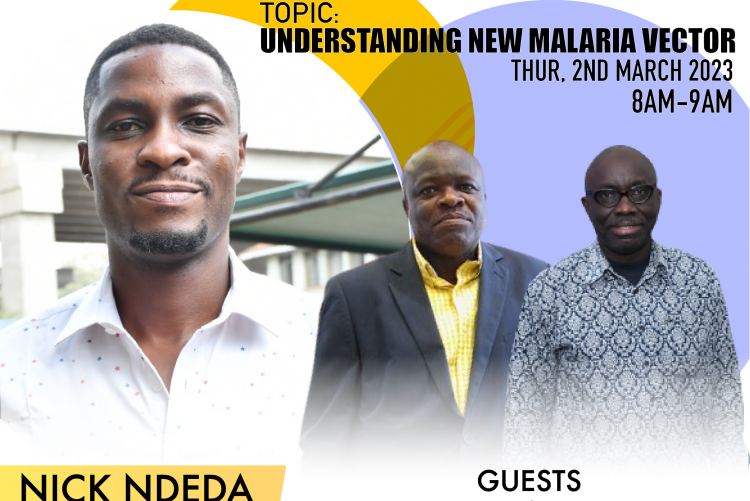Recently, Walter Jaoko, a Professor of Medicine in the Department of Medical Microbiology and Immunology and the KAVI-ICR Director of Research, participated in the KBC Breakfast Show to discuss the emergence of new vectors in the fight against malaria. The breakfast show, hosted by Nick Ndeda, was an opportunity for the experts to shed light on the latest developments in malaria research and the challenges facing efforts to combat this deadly disease.
Prof. Jaoko brought his expertise in medical research to the discussion, sharing his insights on the latest advancements in the study of malaria vectors. He discussed how the emergence of new vectors is changing the landscape of malaria control efforts and how this presents new challenges that must be addressed to prevent the spread of malaria.
Dr. Bernhards Ogutu, from KEMRI, joined Prof Jaoko in the discussion. Together, they delved into the latest research on malaria vectors, including their genetic makeup and behaviour, as well as the effectiveness of current control measures.
The discussion was particularly relevant to the fight against malaria in Kenya, which continues to be a significant public health concern. According to the World Health Organization, Kenya accounts for approximately 1.8% of the global malaria burden, with an estimated 3.5 million cases reported annually.
Prof. Jaoko and Dr. Ogutu highlighted the importance of ongoing research and development efforts to improve malaria control measures in Kenya and worldwide. They emphasized the need for collaboration between researchers, healthcare providers, policymakers, and the public to develop and implement effective strategies to combat malaria.
Overall, Prof. Walter Jaoko's participation in the KBC Breakfast Show provided valuable insights into the latest developments in the fight against malaria, particularly in the context of emerging new vectors. The discussion highlighted the ongoing efforts to combat this deadly disease and the importance of collaboration and research in this fight.
- Log in to post comments

